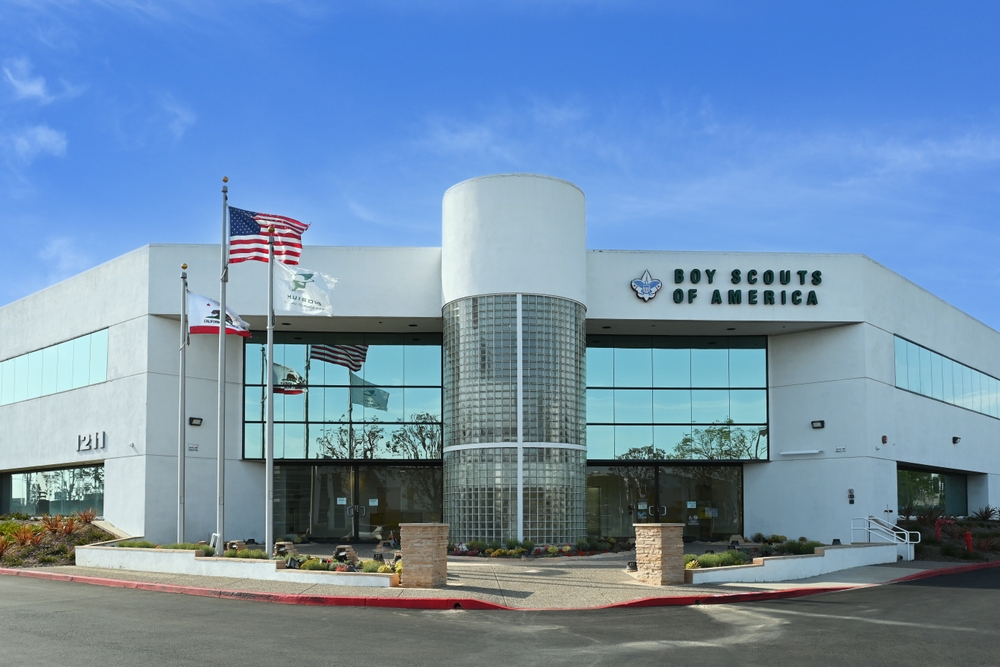Former Boy Scouts who selected a quick payout option in the 2022 sex abuse settlement appear to have inadvertently cost themselves a much higher award.
The settlement, the largest relating to sex abuse in U.S. history at $2.46 billion, included a “quick pay” option that would help plaintiffs avoid a years-long claims process by accepting a flat $3,500 payment. The deadline for that option passed last November.
About 7,300 of the 82,000 victims checked the box for the quick pay option while signing the settlement agreement. Almost 300 of those men, some of whom submitted sworn affidavits beginning in January 2022, say they were unclear about what it meant and asked to reverse their choice.
Delaware’s U.S. Bankruptcy Judge Laurie Silverstein denied their request on Feb. 5, saying that the settlement was clear about the quick pay option and their choice to opt in was final.
She did concede that her ruling “yields a harsh result” for men who have “waited many years for acknowledgment and recompense.”
Attorney Andrew Van Arsdale said that the quick pay option was badly explained “in one paragraph buried in a 23-page document,” without plain language stating it was irreversible.
“It would be a real travesty to make them stick to that $3,500 election when it was clear that was never their intent at the time,” he said. “Their claims are worth significantly more.”
Claimants who did not select the quick pay option could receive up to $2.7 million for the worst cases of abuse, but will endure a thorough and lengthy claims evaluation process.
How BSA Bankruptcy Affects Sex Abuse Settlement
The Boy Scouts of America (BSA) went into Chapter 11 bankruptcy in February 2020 after several U.S. states enacted “lookback window” laws, allowing adult victims to pursue sex abuse lawsuits decades after the alleged abuse took place. The subsequent flood of litigation against the BSA threatened its survival.
The approved settlement, supported by 86 percent of the plaintiffs, allowed them to emerge from bankruptcy last April. The BSA itself is responsible for less than ten percent of settlement funds; most of the money will come from its largest insurers.
Last March, a group of Boy Scout abuse victims known as the Lujan claimants had asked for the BSA bankruptcy plan to be reconsidered, as its third-party release provision grants legal immunity to non-bankrupt insurers, churches, schools and others who are potentially liable for the abuse, in exchange for contributing settlement funds.
Third-party releases have become the norm in recent years for organizations accused of mass harm, such as the Catholic Church.
Supporters of these provisions say that they make “quick pay” options possible and are the fairest way to dispense compensation; others argue they are simply a loophole allowing liable entities to avoid legal scrutiny, diminishing overall consumer protections.
The Lujan claimants’ request was denied, but a few months later, the U.S. Supreme Court agreed to hear a related case on whether bankruptcy protections should continue to include legal immunity for non-bankrupt third parties.
Former pharmaceutical giant Purdue Pharma went into bankruptcy in 2019 after years of highly-publicized litigation over the Sackler family, who owned it for generations. They paid out millions in fines and settlement funds after admitting to aggressively marketing opioid drug OxyContin as less addictive than other pain medication and bribing doctors with lavish vacations. Meanwhile, hundreds of thousands of Americans were dying from opioid overdose.
But despite a multibillion dollar settlement and agreement to close the company, bankruptcy proceedings are on hold while the Supreme Court considers whether Purdue’s restructuring agreement – to include up to $6 billion of the Sacklers’ personal funds – will allow the wealthy family immunity from prosecution.
In light of this, the Lujan claimants, concerned about a similar outcome in the BSA payment plan, asked that it be paused until after the Supreme Court has made its decision.
Judge Silverstein denied that motion in September 2023, saying she would continue to hear disputes related to the settlement without waiting for a decision in the Purdue Pharma case. She noted that – unlike Purdue – the Boy Scouts had already exited bankruptcy, and it’s unclear whether or how a Purdue decision would retroactively change the already-finalized BSA agreement.
The Supreme Court began deliberations in the Purdue case in December and have yet to issue a ruling, but on Feb. 16, Justice Samuel Alito handed the Lujan claimants a victory by issuing a stay on the BSA settlement in response to their appeal. The stay will give the court more time to decide whether to grant that appeal.
The BSA urged them not to stop the settlement from moving forward, saying a delay could adversely affect the scouting program. All claims evaluation and payouts are also on hold, sparking opposition from abuse survivors who support the settlement as-is.




